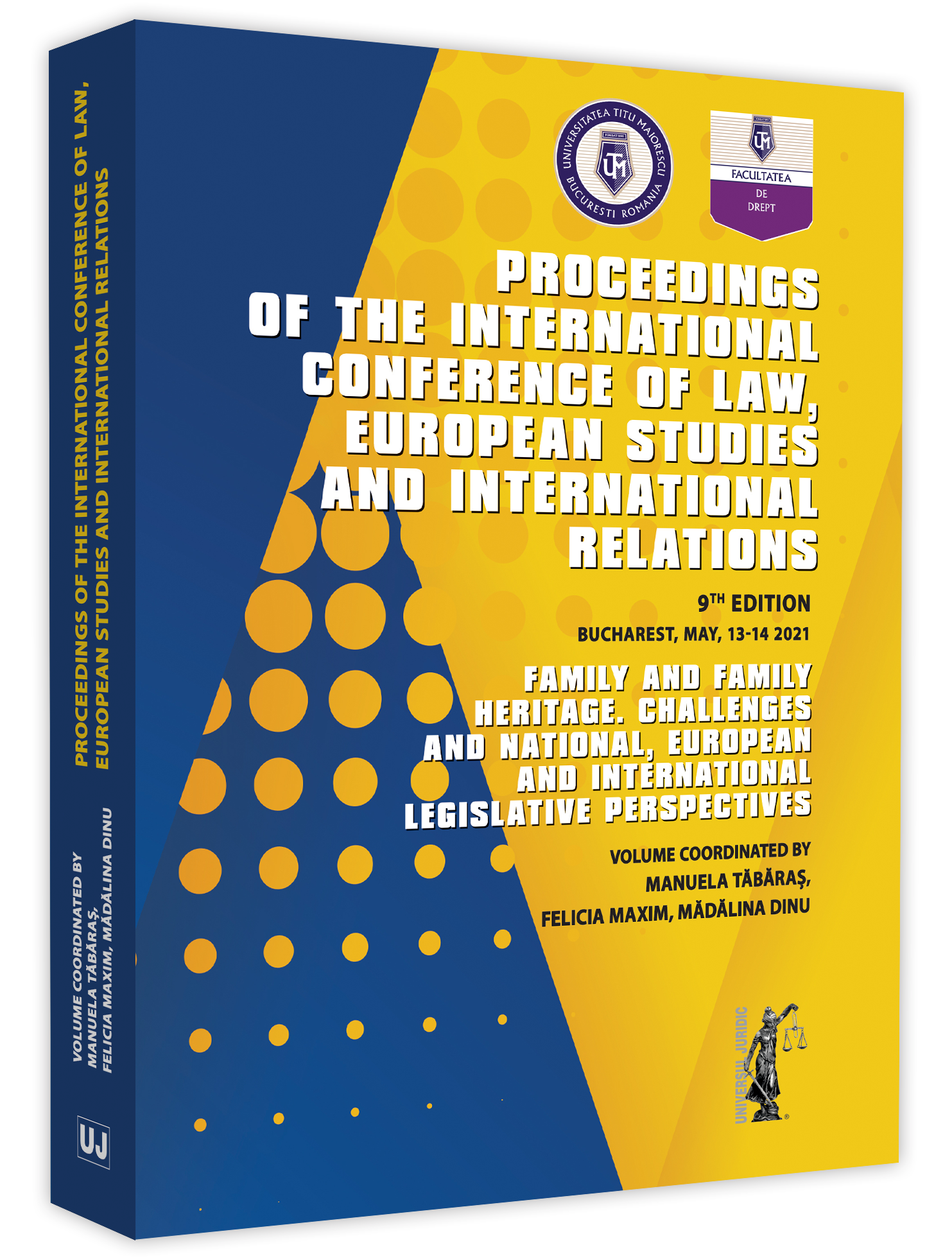THE STATE'S INTERFERENCES IN THE SPHERE OF RELIGIOUS FREEDOM BASED ON ART. 9 OF THE EUROPEAN CONVENTION ON HUMAN RIGHTS
THE STATE'S INTERFERENCES IN THE SPHERE OF RELIGIOUS FREEDOM BASED ON ART. 9 OF THE EUROPEAN CONVENTION ON HUMAN RIGHTS
Author(s): Ionuț Viorel BordeiașiSubject(s): Law, Constitution, Jurisprudence, Civil Law
Published by: Editura Hamangiu S.R.L.
Keywords: religious freedom; interference; religious manifestations; ECHR;
Summary/Abstract: The European Convention for the Protection of Human Rights and Fundamental Freedoms, in Article 9, proclaims that everyone has the right to freedom of thought, conscience and religion; this right includes freedom to change his religion or belief, and freedom, either alone or in community with others and in public or private, to manifest his religion or belief in worship, education, practice and observance. Freedom to manifest one's religion or belief may not be subject to restrictions other than those provided for by law which, in a democratic society, constitute measures necessary for public safety, protection of order, health, public morals, rights and freedoms of others. Based on this article, the signatory states undertake to respect the freedom of thought, conscience and religion of all persons under their jurisdiction. But often the interests of the state are different from those of the person, so there are cases when member states of the convention violate this article, including, there are cases when states impose by law some more unfavorable rules, exercising illegal interference that does not is provided for in the articles of the above mentioned Convention. However, according to paragraph 2 of art. 9 of the Convention, Member States are allowed to interfere in the exercise of freedom of thought, conscience and religion only as a necessary measure for public safety, the protection of order, health, public morals, the rights and freedoms of others. The European Court often leaves a margin of discretion to the state, ie it is up to the state to impose a certain point of view through a law, in a certain situation, and to decide for itself whether the interference is legal and necessary. . However, by its judgments the Court exercises its control by giving an affirmative or negative answer regarding the state's interference in the exercise of religious freedom. If the state imposes a law, it must be necessary and legal in a democratic state, but if the interference is contrary to the Convention, the Court by its judgments, exercising its control, determines whether or not the interference was necessary, the judgment being binding. executed. Recently, the issue of state interference in church affairs, especially during the 2020 pandemic, has been brought into discussion in the public space, by banning the participation of citizens in public acts specific to each denomination, especially during the Easter holidays. By this study we do not intend to accuse or claim that the state has committed or not an interference, this fact being the exclusive competence of the ECHR, but we want to clarify, in light of the relevant legislation and jurisprudence, what are the state's such interferences are allowed to the state and under what conditions the state can intervene and limit religious freedom.
Journal: Conferința Internațională de Drept, Studii Europene și Relații Internaționale
- Issue Year: 2021
- Issue No: IX
- Page Range: 602-610
- Page Count: 9
- Language: English

